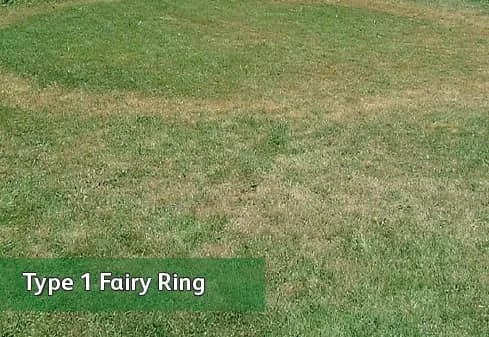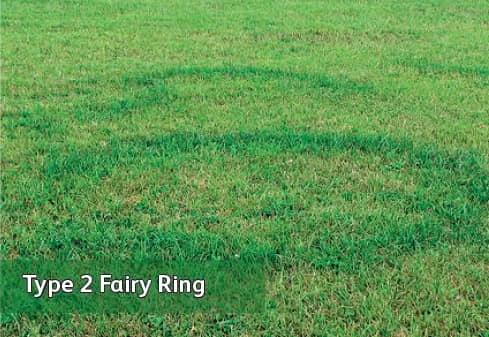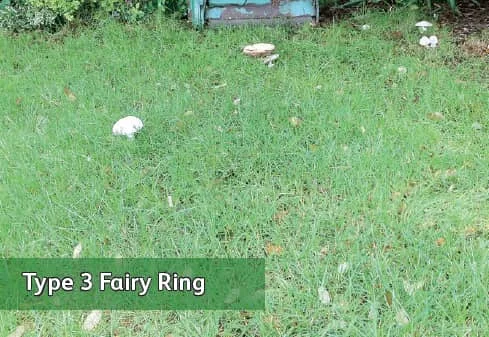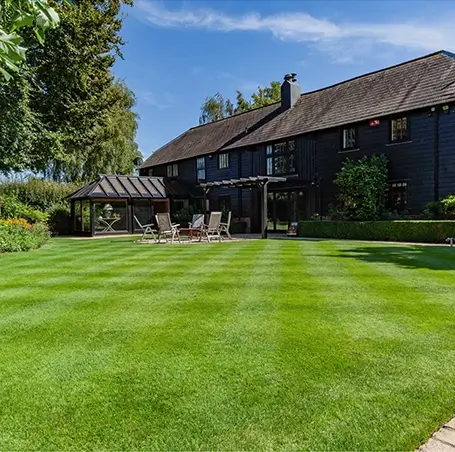Fairy Rings
Last Updated: 16/05/2025
One of the most common and visible turfgrass diseases. Fairy ring affects all types of turf, from golf courses to lawns and parks. You may have seen circular or arc shaped rings, ranging in size from a few inches in diameter to a few feet, where the outer edges or rings are darker green than the surrounding grass, or mushrooms are visible.
Fairy Ring does not attack or infest the grass plant directly, but can damage or kill it through its outward growth through the soil. Each year a Fairy Ring can expand by up to 20cm as bacteria grow outwards underground in search of nutrients.
Types of Fairy Rings
There are different types of Fairy Rings, which can be categorised as follows:
TYPE 1 FAIRY RING
These types of fairy ring are generally classed as the most damaging, as they actually kill the grass that they attack. The dead grass becomes more noticeable, as the grass surrounding it both inside and outside the ring remains unaffected.

TYPE 2 FAIRY RING
This type of ring causes stimulated plant growth by releasing excess nitrogen. The fungi do not kill the grass, but gives it a dark green appearance as a result of the nitrogen release. These rings are still unsightly but typically do not look as bad visually as the Type 1 fairy ring.

TYPE 3 FAIRY RING
This fairy ring type is the most noticeable as it produces mushrooms and toadstools on the surface of the lawn. There are over 60 species of fungi which can cause this type of fairy ring, and it can be surprising how quickly the mushrooms and toadstools appear and spread.

If you spot the odd toadstool in your lawn, the best thing to do is remove it by hand or with a brush to prevent it maturing.
The main problem with fairy rings is that they are very difficult to control, due to the nature of the disease. The mycelium creates a waterproof layer in the soil, which means that when chemicals are applied, they usually prove to be ineffective against the disease.
Fairy rings tend to appear and then disappear from time to time. Overall they do not cause a big problem for most lawns and the problems are usually temporary.
For Further Information
Learn more about lawn diseases here.
Written by Paul Draper, Lawn Care Operative & Lawn Master Franchise Owner
View Profile
Paul is a qualified turf professional with over 10 years of experience. Before joining Lawn Master, Paul worked as a Greenkeeper at numerous golf courses. Paul is based in Leicester and offers lawn care services in Leicester & Market Harborough.





